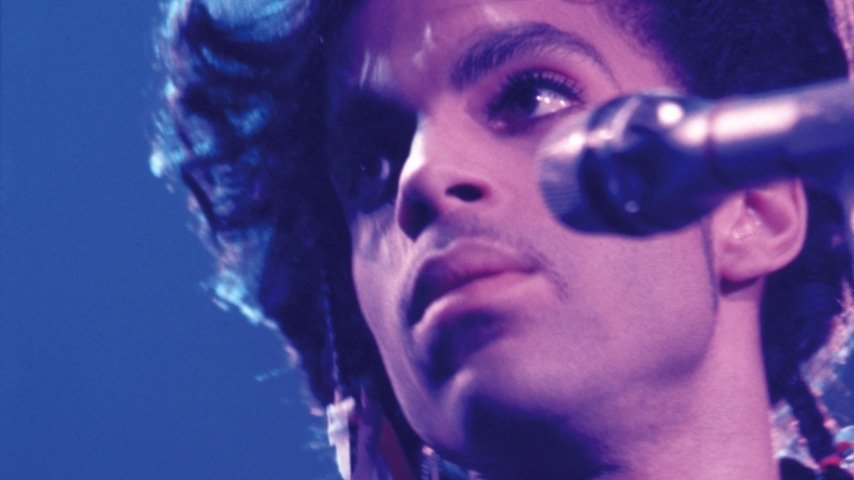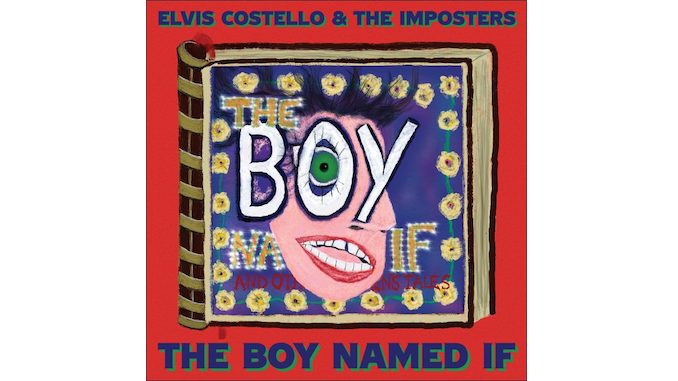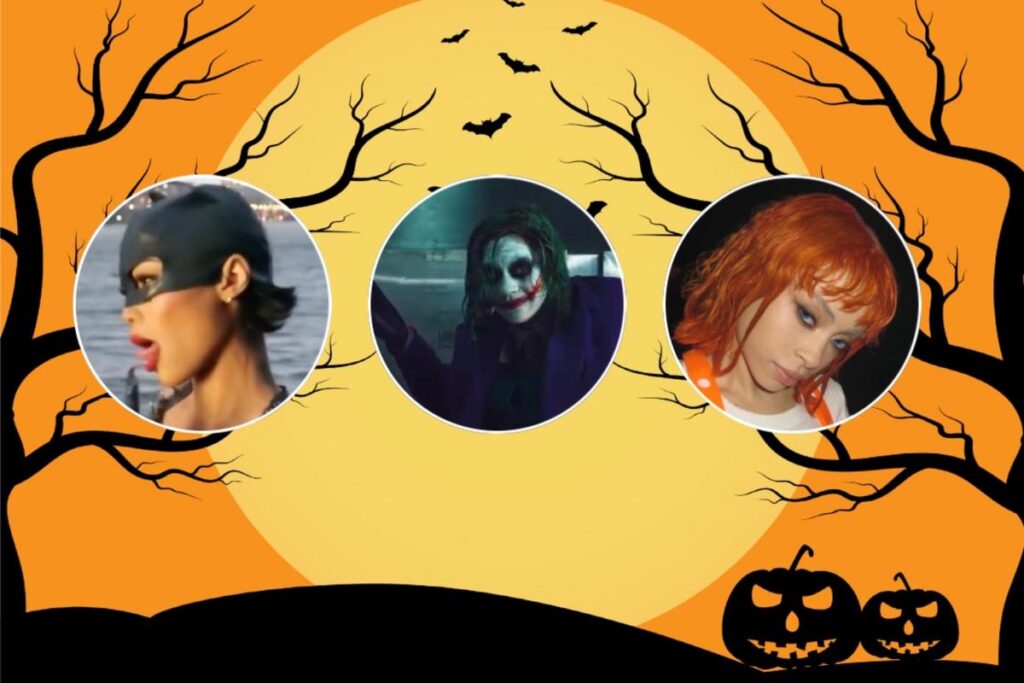Prince was the most talented musician of his generation. He could do it all: play every instrument, solo brilliantly on guitar, sing like a bird, write hits for the radio, write stunners for the critics, fuse genres like an alchemist and dance like a dervish.
And yet he never quite dominated his era as much as he might have. And not just because he died way too young at age 57 in 2016. He didn’t always know what his best songs were—relegating many of his gems to the B sides of singles or to the tape “Vault” at his Paisley Park studio in Minnesota.
And Prince had a habit of undermining his own momentum. He engaged in a long war of mutual destruction with his record company. He followed his brilliant first movie, 1984’s Purple Rain with four film fiascos. He followed the masterpieces of 1999 and the Purple Rain soundtrack with the underwhelming albums Around the World in a Day and Parade. He fired his terrific first band, the Revolution, in 1986. He changed his name to an unpronounceable glyph.
One could argue that all the above were caused by his own bad choices. But some things were out of his control. He was often eclipsed during his peak years by the fame of the charismatic but less gifted Michael Jackson. And just as his career was gathering momentum as the ’70s turned into the ’80s, the ground shifted under his feet. As hip-hop took over black popular music and eventually American music as a whole, the value of Prince’s talents—his ability to write and sing melodies, his ability to create harmonies and rhythms on real instruments—diminished.
The musical world that he had spent his life preparing for suddenly faded in importance. Just as he was elevating the synthesis of rock guitar and funk rhythm sections to new heights, people stopped caring. He had pushed the eroticism of pop music past its old limits only to be left in the dust by an explosion of the crudest kind of locker-room humor.
Despite it all, there’s the music—and there’s a lot more of it than we ever imagined. The latest confirmation of this is the Sign o’ the Times: Super Deluxe Edition box set—103 tracks spread out over eight CDs and a DVD (also available as a two-disc, 16-track Remastered edition and as a three-disc, 29-track Deluxe edition). In addition to the remastered original album and all its related singles, the box includes live performances from 1987: 18 from a public show in the Dutch city of Utrecht and 11 from a private show at Paisley Park. But the set’s real revelations are the 45 previously unissued studio tracks from contemporaneous sessions.
People forget that one of his main beefs with Warner Bros. was the label’s refusal to release all the music that was pouring out of him in the 1980s. Sign o’ the Times was originally conceived as a 22-track, three-CD set called Crystal Ball (entirely different except for the title track from the 1998 album of the same name), which itself was an assemblage of tracks from such abandoned projects as Dream Factory and Camille. Warner Bros., disappointed by the sales of Around the World in a Day and Parade, despite platinum awards and top-10 singles, objected. The label insisted that Prince pare it down to the 16-track, two-CD set released as Sign o’ the Times.
This is a very different from than attitude Capitol Records had for the Beatles in the ’60s. Capitol released two Beatles albums in 1963, nine in 1964, five in 1965, three in 1966 and two in 1967. Back then, the assumption was to release as much music as possible when an artist is at a creative peak and has an audience eager for more. By the 1970s, however, the industry’s strategy was to concentrate on one album at a time for as long as it was getting airplay and sales, even if that meant holding back some powerful music. This may have been good for the label’s marketing department, but it was bad for the listener.
Sure, the deleted tracks showed up eventually on The Black Album, Graffiti Bridge, Crystal Ball and this new box set. But hearing music long after its creation is not the same as hearing it in the moment. If we had heard songs such as “Rebirth of the Flesh” and “Rockhard in a Funky Place” in 1987, we would have learned something about the possibilities of integrating virtuosic rock guitar with a rumbling, rubbery funk bottom that could have shaped American music going forward.
That integration dominates Sign o’ the Times, both the original album and this greatly expanded box set, but that’s only a part of what Prince could do. He could also excel at piano-led rockabilly like “Play in the Sunshine,” classic soul balladry like “Adore,” bleary funk-noir like “The Ballad of Dorothy Parker,” McCartneyesque pop like “Starfish and Coffee,” gender-bending mind trips like “If I Was Your Girlfriend” and theatrical gospel like “The Cross.” There are more splendid examples of all these styles among the previously unreleased tracks.
And he was capable of crafting a pop single as irresistibly hooky as “I Could Never Take the Place of Your Man,” with its sly refusal to be a woman’s full-time lover and its chorus hurtling down a mountain road with multiple voices and instruments yelling joyfully out the car windows. The box set contains an early 1979 version of the song, shorter and more efficient, and it was hit-ready even then. Only Prince would leave a song as potent as this lying around for eight albums.
And there are other potential hits scattered among the unreleased “Vault” tracks on the box set. “Teacher, Teacher,” featuring three-part vocal harmonies by Prince, Wendy Melvoin and Lisa Coleman, is an earworm you want to hear again and again. Almost as catchy is “In a Large Room with No Light,” with Wendy & Lisa again adding dizzying harmonies. With its finger-snapping swing verses and horn-punchy chorus, “I Need a Man” is another potential hit never released.
Prince never mounted a U.S. tour to support Sign o’ the Times. He did tour Europe and performed a $200-a-head, charity benefit for the homeless on New Year’s Eve at Paisley Park. The audio from the June 20 show in Utrecht is included in the box set, as is the video from New Year’s Eve. Both are welcome reminders of what a dazzling live performer Prince was. The songs flowed into each other in long medleys, and Prince himself flowed from hot guitar solo to dance routine to a snatch of piano, from funk grunting to pop crooning to soul balladry.
The music from Utrecht is better, if only because the audience is younger and more excitable, and the band sounds thrilled to have new, strong songs to play. But the Paisley Park show (easily seen for free on YouTube) has some fascinating twists. “Can I Play with U,” Miles Davis’s studio collaboration with Prince on the box set, is underwhelming. But his live appearance at Paisley Park is more successful, as the trumpeter adds a strong solo, egged along by Prince’s guitar, to “It’s Gonna Be a Beautiful Night.” Even better is Prince’s long, blues-rock guitar solo at midnight on the miraculous melody from “Auld Lang Syne.”
There were more landmark albums to come—Lovesexy, Graffiti Bridge and Diamonds and Pearls—but many critics cite Sign o’ the Times as Prince’s best (me, I prefer 1999). But in a world ruled by hip hop and electronica, he seemed more and more an eccentric from the past. And then he was dead.
What remains of Prince’s grand project of weaving all the strands of melodic, live-instrument American music into one glorious whole? He left behind a small band of disciples to carry on his crusade—most notably Meshell Ndegeocello, Janelle Monáe, Gary Clark Jr., Van Hunt and Aloe Blacc. None of them have become superstars, though Monáe has that potential if she’d stop acting in mediocre movies and concentrate on music.
This year has seen two impressive Prince-influenced albums: Devon Gilfillian’s Black Hole Rainbow and Fantastic Negrito’s Have You Lost Your Mind Yet? They’re singer-guitarists who excel on both sides of the hyphen. They lead multi-racial bands and write R&B grooves and pop melodies glued together by a bit of bohemian weirdness.
Fantastic Negrito (Courtesy of Big Hassle)
Gilfillian’s full-length album debut plays it safer than Fantastic Negrito’s fourth album, but the rookie has a knack for catchy rock ’n’ soul choruses. His lyrics don’t really say anything you can’t guess from the song title, but the melodies are rich enough to recall the work of Smokey Robinson and Stevie Wonder during Motown’s Detroit heyday, especially on “Unchained” and “The Good Life,” top-10 singles on Billboard’s AAA chart. Gilfillian is a wonderful singer, warm and precise, whether singing tenor or falsetto. And when he adds a touch of sci-fi reverie to gospel-soul ballads songs such as “Thank Me Later” and “Stay a Little Longer,” it makes you want to hear what he might do if he finds something to say.
Fantastic Negrito is the stage name of Xavier Dphrepaulezz, who was signed by Prince’s manager in 1993 and who first recorded under the single name Xavier in 1996. A 1999 near-fatal car crash prompted a change of direction, and he became Fantastic Negrito. Under that name, he has won two Grammy Awards for Best Contemporary Blues Album, which is a pretty odd category for music that owes a lot more to Prince than to Keb’ Mo’.
The new Fantastic Negrito album takes its title from the first two lines we hear: “Have you lost your mind yet? Then get free tonight,” a clever rewrite of the old P-Funk nostrum, “Free your mind and your ass will follow.” Dphrepaulezz’s songs tickle both the mind and the ass. The mind is stimulated by lyric paradoxes such as “I’m so happy I could cry,” “What I got to say is wrong, but I’m gonna sing it to you” and “I’m her liar; I’m her pain; I’m her shelter from the rain.” The ass by a push-and-pull bottom.
If the words are constantly pulling in opposite directions, so is the music. As soon as the listener is lulled into a pleasurable bed of melody and groove, Dphrepaulezz introduces a discordant sound, a counter rhythm or a cartoonish voice. You can never get comfortable in these arrangements, but that’s good, because most of the plot twists are surprising in a good way. Some of this is done for laughs, but on the best tracks, Dphrepaulezz digs into some challenging material.
“Searching for Captain Save a Hoe” begins with the line, “There’s a treacherous man living inside me,” and proceeds to describe the dark side of the seemingly nice narrator: the disease he gave his girlfriend and the shotgun he keeps by his emotional door. “Your Sex Is Overrated” digs into the fears men have of sexual intimacy. “These Are My Friends” explain why it’s easier to trust a dog than a friend or a lover. These songs work because the sounds are as contradictory as the words. Gospel hand claps and organ are paired with a rap feature from E-40 or a stuttering funk groove; blues guitar fills are paired with electronically processed vocals and guitars.
Prince would have been pleased to know that he still had followers out here in 2020, maybe not at the top of the charts, but still putting out records that defy musical segregation and mechanization, records as tuneful as they are funky, records that prove that the American ideal of “E pluribus unum,” (out of many, one) is still being worked out on the dance floor.




